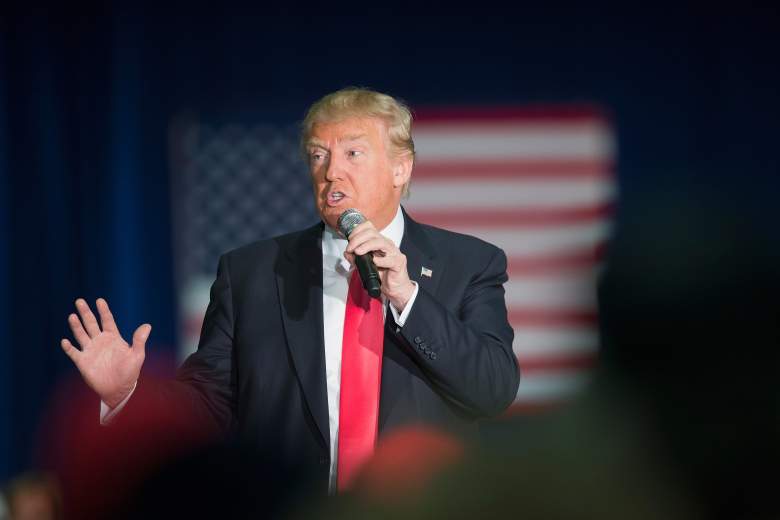
Donald Trump, here at a campaign event in Wisconsin, needs to win the state to have a chance at securing the nomination before the convention. (Getty)
2016 Republican Presidential candidate Donald Trump leads the delegate race by a significant margin, more than 250 over his nearest opponent Ted Cruz. He’s the only remaining candidate with a chance to clinch the nomination without heading to the convention.
| GOP Delegate Count | |
| Donald Trump | 743 |
| Ted Cruz | 517 |
| John Kasich | 143 |
However, the race is coming to a close, and Trump’s wide lead is still far from the 1,237 he needs for a majority of delegates. Trump’s longstanding rift with the Republican establishment mean that his odds get far worse even if he enters the convention without a majority of delegates. Should he fail to get that 1,237 majority, he could be denied the nomination at the convention by foes within the Republican establishment.
Here’s what you need to know:
Delegate Math: “First Ballot or Bust” for Trump
The betting markets at Betfair list the chances of the convention needing two or more ballots at 63 percent. That’s significant because after the first ballot, most GOP delegates become free to vote for the candidate of their choice, and as FiveThirtyEight reports, very few delegates like Trump. That’s why, despite his significant delegate lead in the eventual first ballot, Trump’s chances of taking the nomination are listed at only 56 percent. Nate Silver at FiveThirtyEight noted that the percentage might be even lower, owing to the conventional understanding of delegates no longer applying at that point:
In most of our discussions about delegates here at FiveThirtyEight, we treat them as though they’re some sort of statistical unit. We might say a candidate “racked up 44 delegates” in the same way we’d say Steph Curry scored 44 points. But those delegates aren’t just a scoring mechanism: Delegates are people, my friends.
After the first ballot at the convention, a significant number of delegates are no longer bound to the candidate their state voted for. If they’re allowed to vote for whomever they want, a significant number will back another candidate.
Looking Ahead: New York
Trump is currently off the pace in terms of getting the delegates it’s expected he’ll need, but only slightly, meaning that Trump’s race for the 1,237 should come down to the last few primaries. He should get significant help in the next primary, however, as it’s held in his native New York. RealClearPolitics composite polling shows Trump up 31 points, making him a strong candidate to pick up the lion’s share of New York’s 95 delegates.